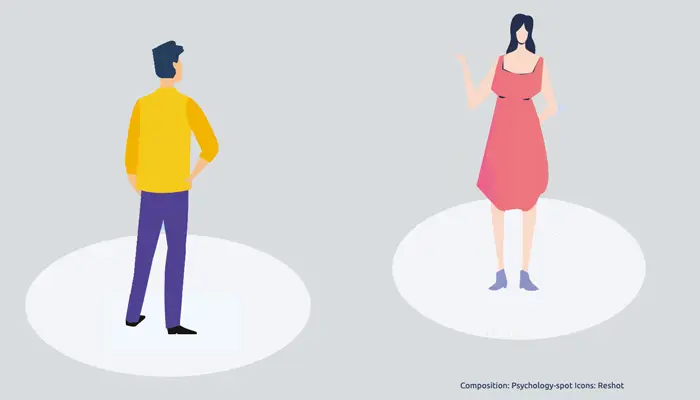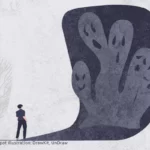
Letting go is realizing that some people are part of our past, not our future. However, that doesn’t mean it doesn’t hurt. Although necessary, goodbyes are always painful, especially when the paths fork or there is a possibility that we will hurt each other.
There are relationships that are leaking and, no matter how much we fight to save them, they will end up sinking. Saying goodbye to them is a sign of strength and maturity. It can prevent us from living in a toxic environment or even allow us to safeguard a good memory of the relationship. Many times that ending becomes even liberating, although it is not exempt from doubts and nostalgia that can make us turn back.
Why do you miss someone who hurt you?
When we establish a relationship, even the most dysfunctional ones, what we do is create a shared psychological space. In that psychological space are not only the bad moments but also the positive experiences lived together. That psychological space is made up of shared illusions, habits built over time, and all the things in common that we have with that person.
When we say goodbye to someone, that psychological space survives in time. It doesn’t disappear instantly after the door slams or the last hug. And every time we return to that shared space, the nostalgia is revived. A song, a special day, a perfume or even a phrase can catapult us directly into that relationship, activating positive memories.
Remembering and missing someone is not bad, even when it comes to a relationship that it has hurt us. In fact, studies have proven that nostalgia serves to alleviate the discomfort caused by the absence of someone we once loved but who for some reason is no longer part of our lives.
Missing a person is usually, in general, a positive feeling that helps us alleviate loneliness and sadness due to their absence while allowing us to process and adapt to the new reality. Missing someone also helps us review the relationship to incorporate it into our life story as a closed chapter.
Missing someone who has hurt us does not mean that we are masochists, it just means that we have emotionally returned to that shared psychological space where there are also positive memories.
However, we must be careful, because nostalgia generates also the impulse to regain contact and re-establish a relationship that will never be how we imagine it, as time softens everything and makes us forget the bad moments and the reasons that they led us to separation.
Missing someone is not reason enough to recover the relationship
Every relationship, at least at the beginning, brings us something rewarding and leaves us with positive experiences. However, it is easy for distance and longing to play tricks on us, making us forget the problems, disagreements and conflicts experienced. Nostalgia for the good times lived threatens to erase the weight of negative experiences in one brush, making us see the relationship through an unrealistically optimistic prism.
For that reason, missing someone and remembering what was right are usually not enough reasons to back down. Before recovering the relationship, it is advisable to assume a psychological distance that allows us to balance the positive and the negative.
Nostalgia is not necessarily a sign that we should resume the relationship. Many times it is simply a longing for the positive feelings we experience, the shared experiences or even for times that will no longer return when we felt younger, free, carefree…
We must bear in mind that each relationship is unique in time and space. It is not something bad or good, but natural, like the course of life. This means that the person with whom we connect at one point in our life is probably no longer the most appropriate or does not fit into our current life, especially if the relationship was already showing signs of wear and tear.
Breakups, even the most necessary ones, also come loaded with doubts and longings that we must explore rationally. A dysfunctional relationship is negative and destructive for our evolution, so although the distance generates a certain nostalgia, in most cases the smartest thing to do is not to take it up again and let everyone go their own way.
Many times, it is better to withdraw in time to preserve the beautiful memories than to insist on continuing to hurt ourselves. Relationships, like life, must flow, so it generally doesn’t make sense to rescue what we decided to let go at the time. Do not let nostalgia play tricks on you by making you resume relationships that are not good for you.
Sources:
Paersch, C., et. Al. (2022) Recalling autobiographical self-efficacy episodes boosts reappraisal-effects on negative emotional memories. Emotion; 22(6): 1148–1158.
Dahl, A. et. Al. (2019) Positive memory specificity is associated with reduced vulnerability to depression. Nature Human Behaviour; 3: 265–273.
Zhou, X. et. Al. (2008) Counteracting loneliness: on the restorative function of nostalgia. Psychol Sci; 19(10):1023-9.



